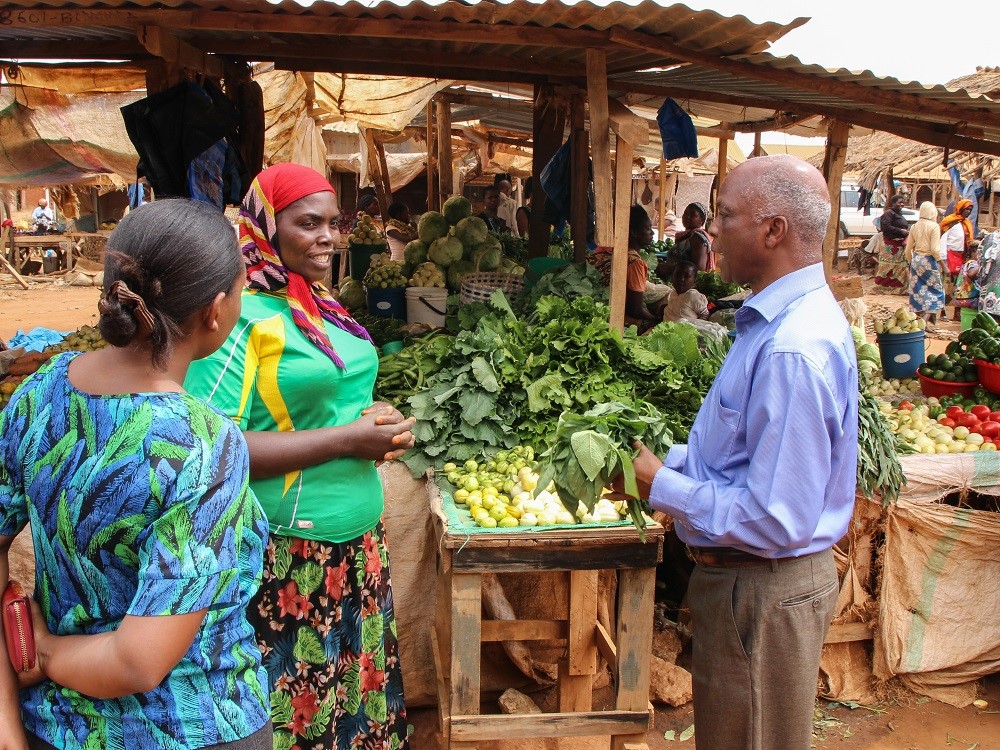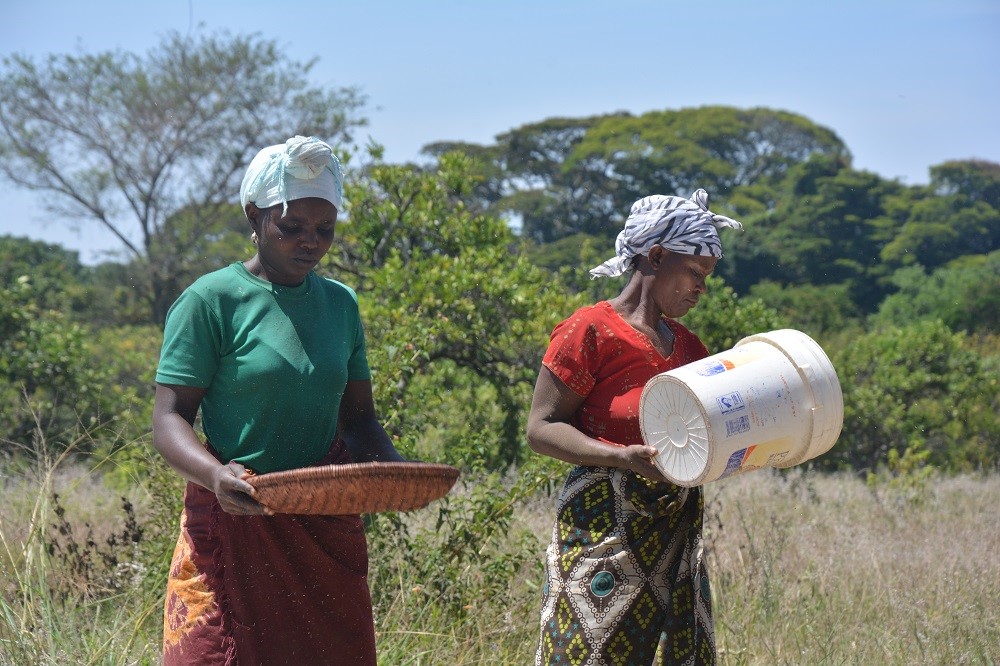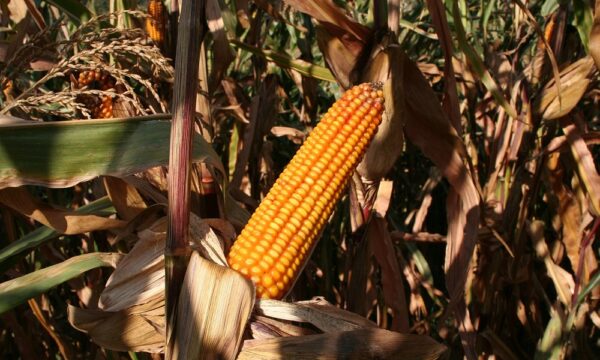
A CABI study brief has shown that three years on, the Good Seed Initiative is still reaping rewards for farmers in Tanzania, writes Dr Monica Kansiime, Scientist-Agricultural Economist, CABI. The study entitled Perspectives on sustainability of smallholder seed enterprises: a case study of African indigenous vegetables in Tanzania reveals how this initiative was instrumental in increasing seed quantities in certain parts of Tanzania from 14 metric tons in 2016 to 41 metrics tons in 2019. However, as seed enterprises succeed, it is feared that women may be crowded out of the vegetable value chain, as was seen with contract farming that included more male than female farmers.
The initiative, funded by Irish Aid and implemented with partners in Tanzania, was created to strengthen the way that seeds for African indigenous vegetables (AIVs) are produced and distributed to farmers. These vegetables are not only a great source of nutrition, rich in vitamins and minerals, but also an important source of food security and income generation in Africa. The initiative ran from 2013 to 2016, and CABI led its implementation.
Awareness of the nutritional benefits of AIVs had been growing among East African consumers and the demand for these vegetables increased too. However, this increasing demand was met with a lack of available quality seed.
Through this project, CABI wanted to promote African indigenous vegetables. Access to quality seed simultaneously increases production of quality vegetables, thereby contributing to diverse diets for both rural and urban dwellers.
The initiative was a great success reaching over one million consumers and growers through agricultural shows and events, cook shows, nutritional outreaches, radio programmes and seed rallies.
Three years on, still going strong

In 2019, three years after the project had come to an end, CABI launched a study to understand how sustainable farmer seed enterprises had become and whether the project strategies had played a role in achieving and meeting ongoing farmer seed production.
The study focused on two seed production models – contract farming in Arusha and the quality declared seed system in Dodoma. The former is essentially an agreement between a farmer and a processing or marketing company for the production and supply of agricultural products under a forward agreement or contract. The latter is a protocol aimed at assisting people in the production of quality seed.
Data were collected through focus group discussions with 73 men and 69 women as well as individual interviews with seed sector stakeholders. Results showed that farmer seed enterprises had indeed continued to thrive years after the completion of the Good Seed Initiative under both seed production models, with household incomes increasing substantially (by over 50 per cent) and avenues for income diversification also being created.
In the Dodoma region, an area that lacks a strong formal seed sector, the quality declared seed system model proved to be a viable strategy for providing quality seed to farmers. However, under this model, production was challenged by a lack of access to services that are essential for quality seed production such as agricultural advisory services, inspections and seed testing services. This also included a lack of access to foundation seed – the starting seed that seed producers need to produce quality seed, which is often supplied by government or research institutions.
In Arusha, contract farmers continued to engage in contractual arrangements with seed companies for bulking African indigenous vegetable seeds, including globally important vegetables such as onions and tomatoes, building on farmers’ experience in producing these seeds. Two seed companies reported an increase in contracted seed quantities in Arusha and Manyara regions from 14 metric tons in 2016 to 41 metrics tons in 2019, and an increase in the number of contracted farmers from 112 to 250 in the same period.
Some strategies were important for making sure that farmer seed enterprises continued to function such as linking seed producers to the market through innovation platforms and contracts. Also important was stimulating demand for AIVs by raising awareness of their nutritional value and promoting the value of using quality seed for increased productivity.
The commercial viability of seed production also provided incentives for continued seed production.
The study revealed an interesting gender angle. Vegetable production has always been considered a woman’s activity. However, as the AIV value chain becomes more commercial, men take interest and join. They have advantage over women, because they own land and make decisions on farm production. This is a potential challenge to women, because as the AIV businesses become more profitable, women may increasingly become crowded out.
This phenomenon was not just apparent in Tanzania but also in Kenya where less than 10% of women participate in contract farming arrangements for fruits and vegetables.
Recommendations that came of out the 2019 study included helping women to take part equally in the seed initiatives and take advantage of the benefits of contract farming in the same way as their male counterparts did.
A further recommendation was for government agencies to support the quality declared seed system, helping to continue the supply of quality seed to areas less served by the formal seed sector, and helping to continue the supply of crops not well integrated into the formal system.
Additional information
Main image: Reaping the benefits of the Good Seed Initiative in Tanzania (Credit: CABI).
To read the study brief in full, see Perspectives on sustainability of smallholder seed enterprises: a case study of African indigenous vegetables in Tanzania
To read the associated news story on the study brief, see ‘Important role of women highlighted in study focused on the benefits of good farmer seed production.’
Find out more about the Good Seed Initiative, funded by Irish Aid, including the project’s partners
Find out more about CABI’s work in development communication and extension here
Related News & Blogs
Workshop explores Horizon Scanning options to identify and prioritize pests of threat to EAC Partner States
CABI has joined forces with the East African Community (EAC) Secretariat to hold a horizon scanning workshop in Tanzania to train Partner States on the identification and mitigation of priority crop pests which threaten livelihoods and food security. S…
16 September 2024




